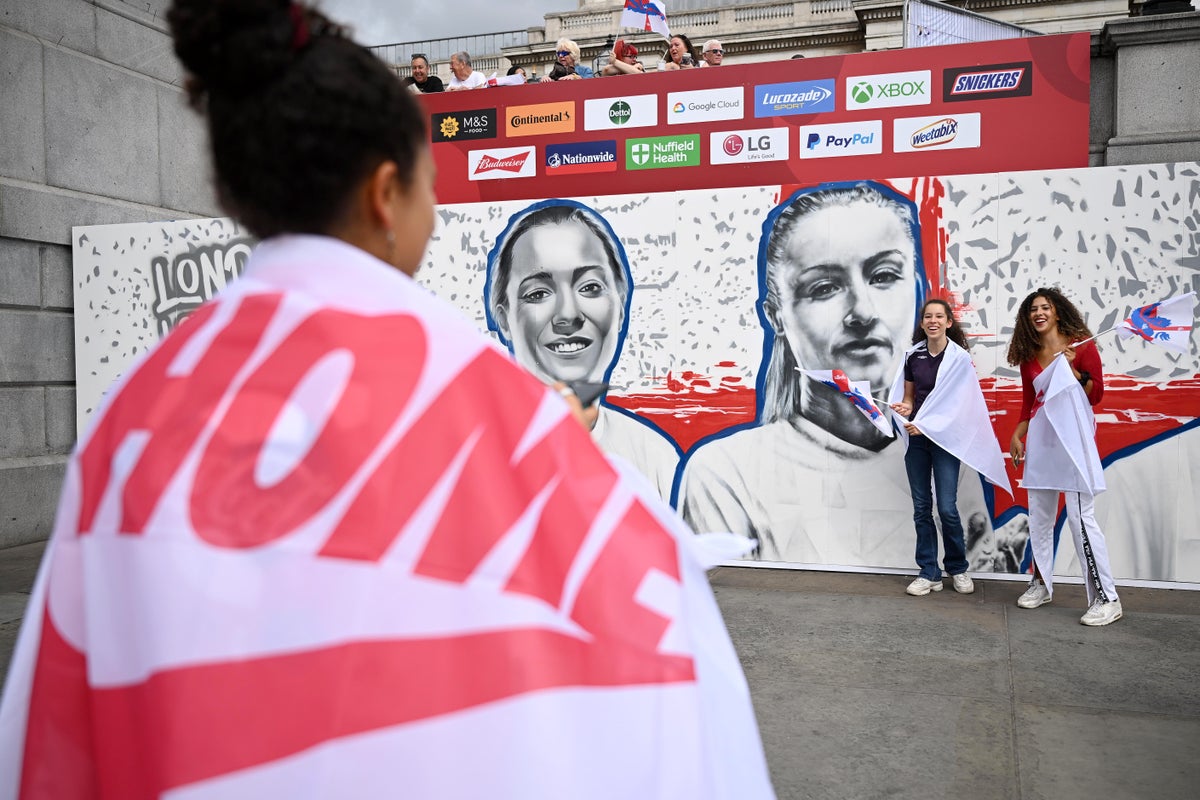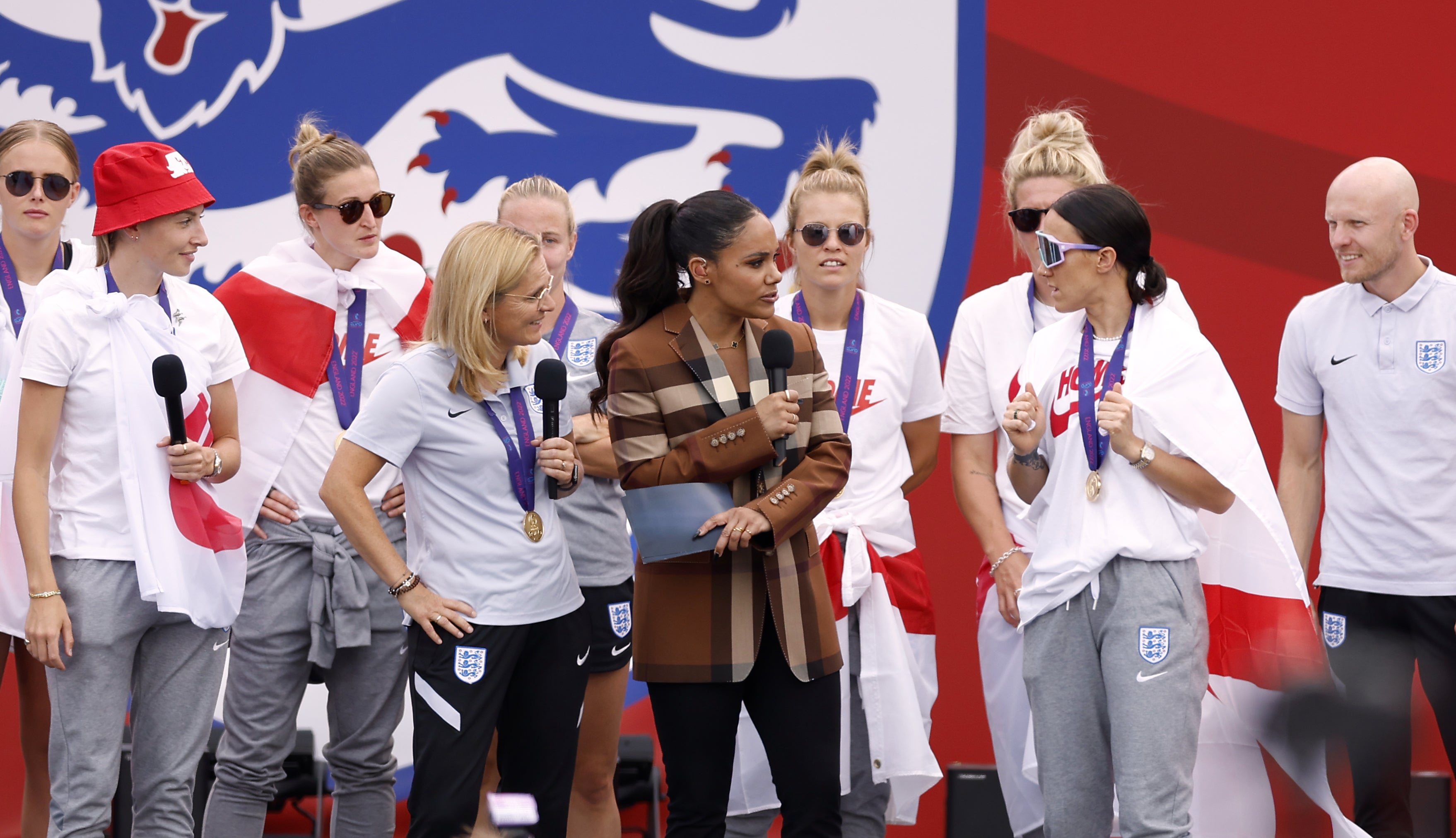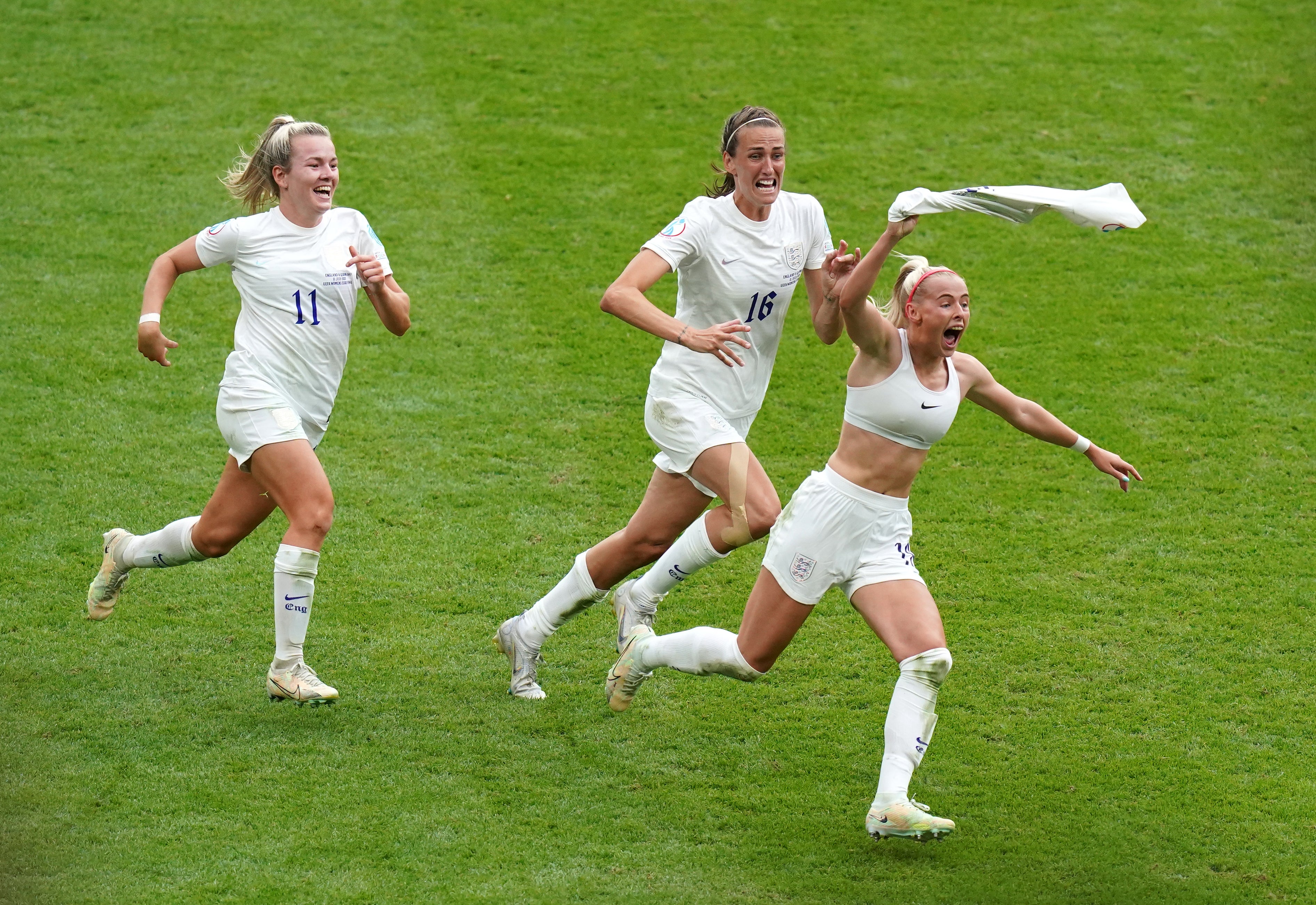
England’s Lionesses need more diverse players if women’s football is to continue to grow, an ex-Chelsea star says.
The formidable Lionesses beat Germany 2-1 in the Euro 2020 tournament in front of 87,000 supporters at Wembley Stadium on Sunday, securing the first major tournament title for England since 1966 and setting a television viewing record.
However, the predominantly-white team has faced some criticism over its lack of diversity.
Of a 23-strong squad, the Lionesses have just three players who are Black or mixed race - Jess Carter, Nikita Parris and Demi Stokes. Parris appeared on the pitch as a substitute during the final match.
By contrast the France women’s team, which also reached the quarter-finals of Euro 2022, contains 15 Black or brown players of out of 23.
While full of praise for the Lionesses’ victory, football experts told The Independent that greater representation was needed if the sport is to develop and called for pathways to the big league to be more racially inclusive.
Leon Mann, founder of The Black Collective of Media in Sport, said: “The lack of diversity in the squad does highlight a pressing challenge the game must address. We welcome the announcement of more emerging talent development centres across the country. It’s vital these are accessible to those from underrepresented groups.
“We also believe groups of Black, Asian and minority ethnic experts in the women’s game should be formed to ensure the FA has a diverse lens on these issues. We believe they will do the right thing to bring about the positive change we all want to see.”

Former Chelsea player Michael Ambrose lauded the Lionesses’ feat on the pitch but cautioned: “If women’s football is going to progress even further, it needs to be diverse and it needs to be seen to be diverse - not just on paper or through an all-white team.”
“What, are you telling me there’s no more Black girls who can play football in this country?” he added.
“It’s really sad that young Black and ethnic minority children are growing up without seeing a better level of representation in the sport overall. What message is that sending?”
Mr Ambrose, who’s co-founder of The People’s FA, said lack of diversity in football isn’t just confined to the women’s leagues and is an issue that plagues the industry from top to bottom.
“What Black players have contributed to this country over decades and it has never been replicated in the managerial aspects, for example,” he said.
“I am absolutely so proud of what the girls did last night, how women’s footy has accelerated; however, sporting authorities - such as the FA - have to stand up and be counted. And for those who say it’s better to focus on celebrating the victory and not discuss the need for more diversity... well, we can talk about both.”
The racism experienced by Black women players such as Eni Aluko reflects the additional struggle that ballers from marginalised backgrounds face, Mr Ambrose added.
Just 1.6 per cent of executive, leadership and ownership positions in football are held by Black people, according to a study.
Issues around representation have not been lost on some sports pundits such as the BBC’s Eilidh Barbour, who received backlash for pointing it out.
Speaking about the team, the presenter said: “All starting eleven players and five substitutes who came onto the pitch were white, and that does point towards a lack of diversity in the women’s game in England.”

Some 43 per cent of players in the men’s Premier League are Black, according to a report by Professor Stefan Szymanski and the Black Footballers Partnership (BFP). In its female equivalent, the Women’s Super League, this falls to less than 10 per cent or 29 players of a total 300.
Charity Show Racism the Red Card said: “This ground-breaking achievement of winning Euro 2022 is an opportunity to look at how we advance the Women’s game in all areas.
“Show Racism the Red Card would like to see the FA put diversity at the forefront of that agenda. This would allow the FA to consider how to make the game more accessible and increase representation at all levels of the game. Hopefully, this will lead to all young girls dreaming of emulating our lionesses in future.”
However, experts have warned that superficial comparisons between the disparities between the men’s and women’s teams are flawed because women’s football was banned for decades, which limited opportunities for players.
Numerous well-placed sports professionals told The Independent that since Hope Powell - the first Black woman to be appointed England coach - stood down, the issue had got lost.
Sabby Dhalu, co-convenor at Stand up to Racism said: “It took a 10-year struggle from women’s football being banned to England women becoming champions of Europe.
“We cannot wait another 100 years for African, Asian, Caribbean and other minority ethnic women footballers to be more visible and for them to not be subjected to the sort of horrific racism we’ve seen black men endure.

“Developing woman’s football must go hand in hand with ensuring the game is as inclusive as possible and nurturing a diverse range of talent. The visibility of black women footballers in England will be as important as Nichelle Nichols was for Black actors in the US.”
Shaista Aziz, co-director, of The Three Hijabis which works to tackle racism and gender-based violence in football and sport, told The Independent how Wembley Stadium was packed with a diverse crowd of people of different ethnicities, demonstrating the sport’s wide appeal.
She said while the Lionesses were role models for a range of groups, the lack of racial representation on the team was “glaring”.
“We should also question the lack of racialised talent coming through grassroots football in England and work on identifying the barriers and culture preventing girls and women of colour of reaching their potential.”
The FA has been approached for comment.







